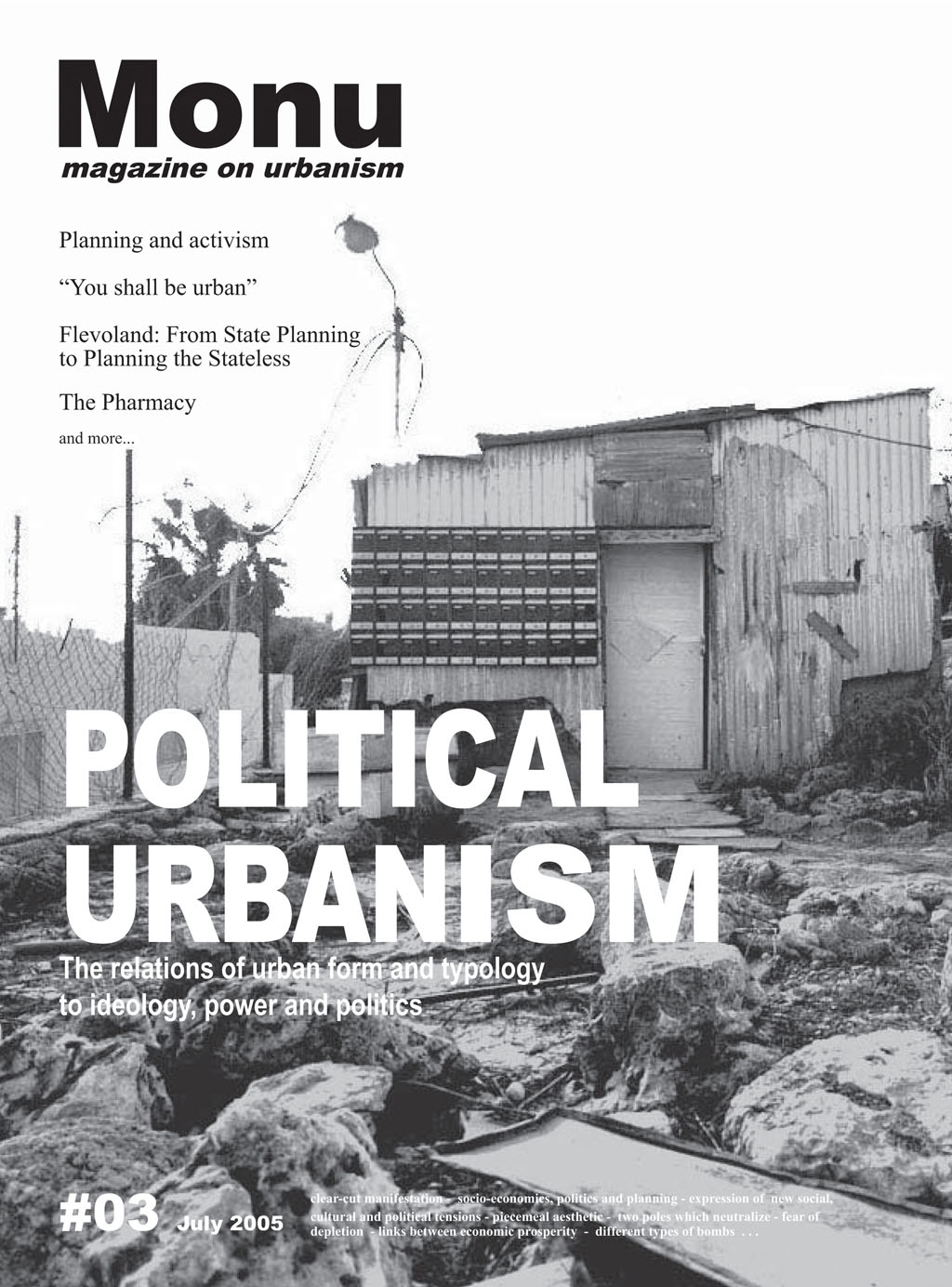05-07-05 // MONU #3 – POLITICAL URBANISM

(browse the entire issue #3 on Youtube)
Planning and Activism by Malkit Shoshan; nEUtral by bad-architects; Rojak by Maggie Peng; Between Aerial Defense and Modernism by Lola Meyer; Model City – Interview with Margitta Faßl, the managing director of ‘Wohnungsgesellschaft Hoyerswerda’ by Bernd Upmeyer; You shall be Urban by Theo Deutinger; Flevoland: From State Planning to Planning the Stateless by CASE; The Pharmacy by Joost Meuwissen; Turning the Corner by Fabian Faltin; Supersuburbia by UAS
Exploring the relationship between power, politics and cities, urban territories is like looking at the chicken and egg question. What grows out of what? In Hoyerswerda, a middle sized east-German city where we spoke to Margitta Fassl, the Managing Director of the largest housing authority (that manages about 60x% of the cities housing units), the situation seems clear. The city over the last 50 years has been a ball on the waves of larger economic and political developments. From a small town of about 7,000 people, Hoyerswerda was built up into a model city the socialist era with about 70,000 people, now to its status is being a model amongst the shrinking cities in Eastern Germany that wither in the new market economics. Like clockwork is house after house demolished. There remain approximately 40,000 residents and the city is expected to lose at least another 10,0000 in the coming years. Hoyerswerda came to tragic fame in the early 90’s when a racist, xenophobic mob and dozens of neo-nazis repeatedly attacked immigrants and engaged in violent street fights with the police. Ultimately the discussion about the relation between urban form and urban development, to politics and power, has a large impact on the self-understanding of the professions that deal with these topics. Are we as architects, planners, social scientists etc. mere ‘hostages’, as Rem Koolhaas expressed it at one point, of larger economic and political contexts, or can planning, research and building actually be activism, a contribution to a struggle to change things? Malkit Shoshan in her truly extraordinary project in a village in Israel in a way answers this question. Her account of the project in “Planning and Activism” shows how research in urban planning combined with an effort to engage stakeholders and powerbrokers can actually be a powerful political act.
(Bernd Upmeyer, Thomas Söhl, Editors, July 2005)
Find out more about this issue on MONU’s website.